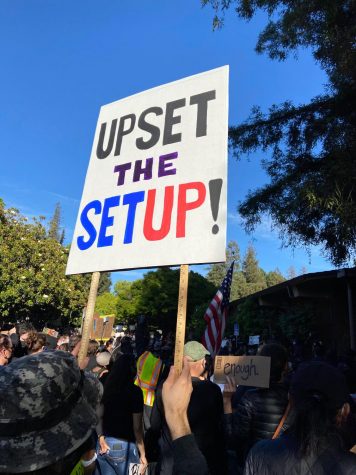AOC and Tom Yoho breakdown
As reckless public attacks on women have been made public, countless deflective apologies have followed. However, no matter how twistedly and methodically these apologies are strung together, it is still disturbingly evident that stereotypical and cruel abuse of female leaders is normalized in today’s patriarchal society.
A strike in this pattern was demonstrated in late July of this year, in a heated exchange between Alexandria Ocasio-Cortez and Ted Yoho.
According to CNN and a reporter from The Hill, “Disgusting” and “F**cking B*tch” were amid the terms used by Republican representative Ted Yoho to his colleague, Democratic representative Alexandria Ocasio-Cortez. Whilst this blatant verbal attack stemmed from the two representatives’ opposing stances regarding unemployment and crime in New York, Yoho’s outburst reveals a bigoted attack against all out-spoken women rather than a respectful challenge of his colleague’s proposals.
Yoho’s choice of words hints at the underlying, larger issues of misogyny and the belittlement of women. Moreover, Yoho’s response to the incident further evidences how misogyny continues to thrive today. According to CNN, Yoho and his office denied using the vulgar terms entirely. In a flimsy apology, Yoho said, “I cannot apologize for my passion or for loving my god, my family and my country.” Rather than directing his apology to the woman he insulted, he deflected responsibility and centered the apology around his values and self. Yoho continued to talk about his wife and two daughters in defense of himself to subtly hint that his close relationships with women exemplify his allyship with women. What Yoho failed to realize is that being around women is unequal to respecting and allying with women.
Repeatedly, women are portrayed as sensitive and overdramatic; taking offense too easily. A woman who stays silent reinforces the “weak” stereotype and primes young women to allow dismissal by their male counterparts. Yet a woman who stands up for herself and her morals is categorized as the overemotional “F**cking b**tch” stereotype that Yoho’s words reinforce.
It is important to understand that prejudice against women in the workplace runs much further than these derogatory slurs. The dismissal and belittling of women is not limited to explicit terms like “b*tch,” but other words that are disguised by their surface-level sweetness. A look deeper into sugar-coated terms like “baby”, “honey” and many more reveal the normalization of disregard towards women in today’s professional spaces.
The vast amounts of insults and terms used to identify women in casual conversation, heated debates or anything in between, not only strengthens the idea that women should submit and minimize themselves to their male counterparts but specifically to their white colleagues.
Throughout women’s advocacy movements, white women gained the right to vote first and were, and still are, addressed in a more respectful and formal manner than women of color. It is undeniably more common for women of color to be overlooked and called belittling terms in the modern workplace. These terms additionally set forth the idea that women do not hold their own identities, and adds on to the vast amount of disrespectful microaggressions against women. This behavior creates barriers for women to share and have heard their knowledgeable and progressive ideas and are often outspoken and copied by their male peers, who eventually get the “attaboy”.
In Yoho’s case, Ocasio-Cortez denied him the privilege of getting away with his careless actions. Ocasio-Cortez responded to Yoho’s “apology” and said his remarks were insufficient.
“I will not teach my nieces and young people watching that this [is] an apology, and what they should learn to accept,” she wrote. “Yoho is refusing responsibility.” Ocasio-Cortez refused to allow belittlement and as a result set a strong example to her many young female followers to never minimize themselves and allow mistreatment from their peers.
Though the underlying and bigger issue of discrimination against women is so widespread, the solution for this specific problem is rather simple. Every individual must work to create an environment where all people are heard, valued and respected the same. It will take a much larger group effort to stop patriarchy, but putting a full stop to these aggressions will continue the conversation and movement, while also having a considerable positive impact.
As Ocasio-Cortez said, “This issue is not about one incident. It is cultural. It is a culture of lack of impunity, of accepting of violence and violent language against women, and an entire structure of power that supports that.”












